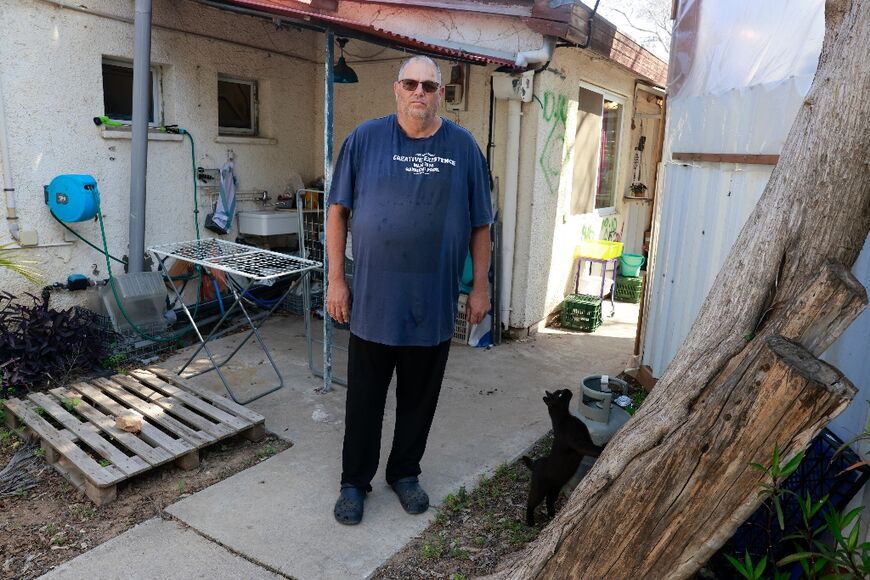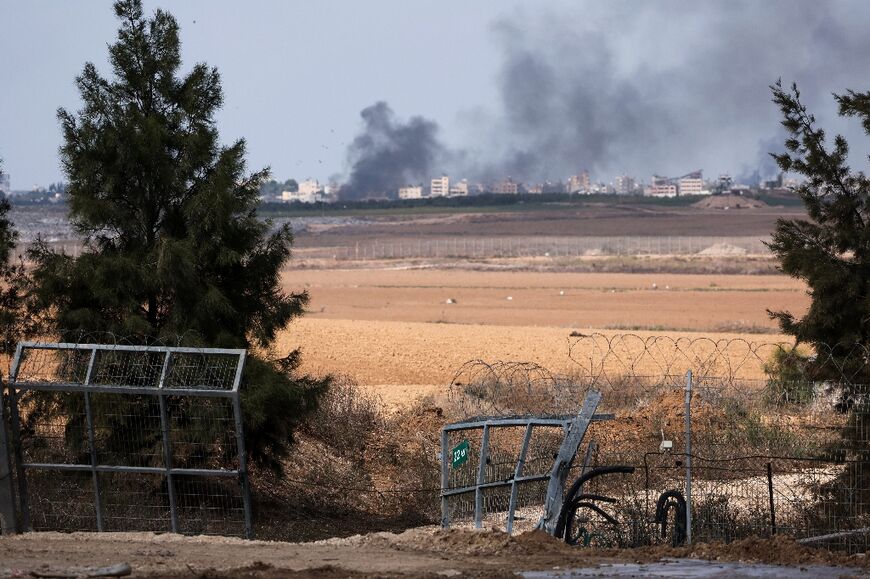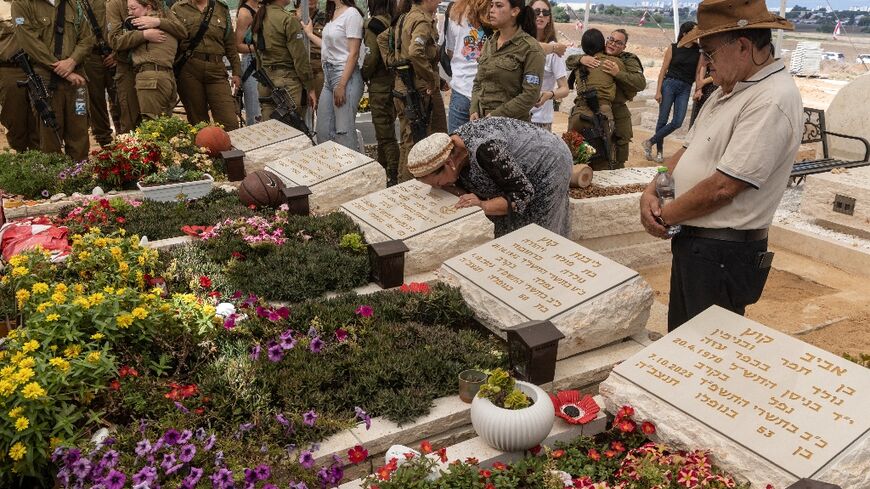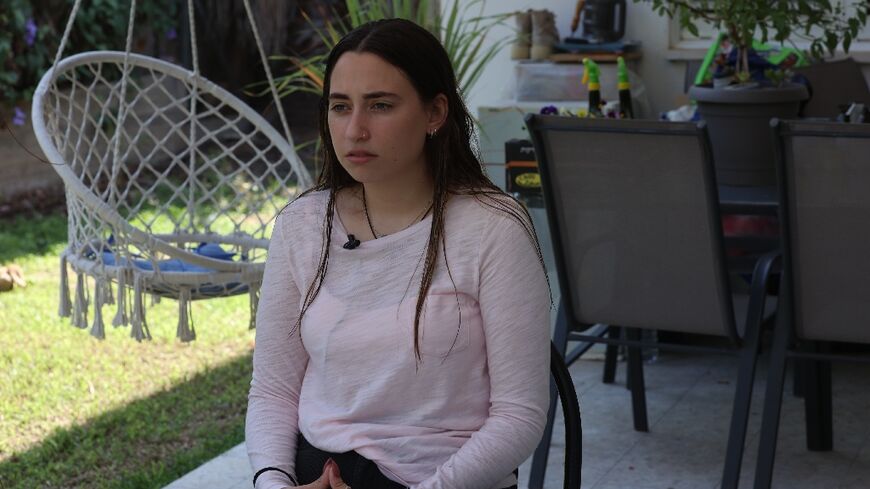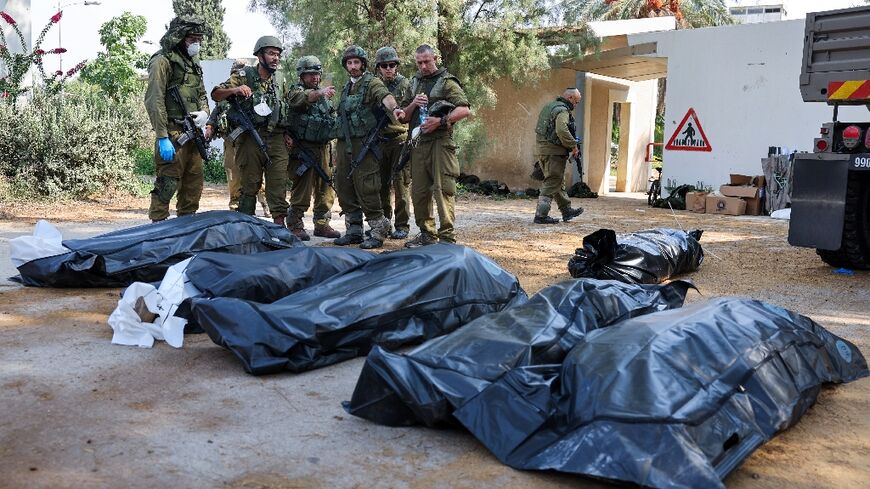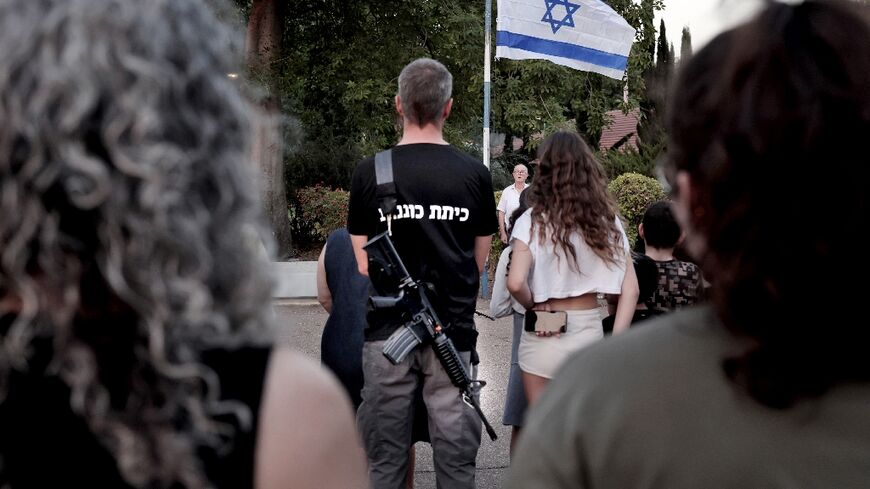Alone but unbroken: survivor returns to Hamas-attacked kibbutz

No one is around to harvest the fruits weighing down the loquat branches of Kfar Aza. No one except Shar Shnurman, the first survivor of the October 7 attack to have returned to this Israeli kibbutz.
"The entire kibbutz is my garden now," Shnurman said as he pointed to the lush vegetation peppered by the stark colour of citrus and loquat.
Since he and his wife Ayelet Khon returned in December to their community decimated by Hamas militants, they've strived to "live a normal life in an abnormal place".
They've been picking fruits, drinking coffee on their terrace, and organising a barbecue every Monday.
Over the course of 24 terrifying hours, locked inside their safe room, the couple heard armed men from the Palestinian Islamist movement kill and pillage around them.
At one point "a few terrorists decided to sit here", Shnurman, 62, recounted.
"A few of them were standing near the safe room window. We could hear them, smell them."
When the army evacuated them, on October 8, "we knew we were coming back, it was clear to us", said Shnurman. The logistician moved into the kibbutz bordering Gaza 20 years ago and worked at a nearby factory.
- The first night -
Shar and Ayelet stayed with relatives for several weeks, then in a Tel Aviv apartment.
After that, they did what remains unthinkable for most other survivors: return to a place still alive with signs of a brutal attack.
"At first, the kibbutz looked like a war zone," said Shnurman, who prepared his return with daytime visits of a few hours with the army's assent.
Then in early December, the couple took the next step.
"We told the security manager of the kibbutz 'Listen, we came back' and he said, 'You are crazy, but okay'. And since then, we are here,'" Shnurman said.
"The first night I slept beautifully," he said.
"It's the only place where I sleep well, because in Tel Aviv I was in a very nice apartment, but I slept two hours a night. It's a huge difference to sleep in your (own) house."
Still, the fighting in Gaza is clearly audible from Kfar Aza, and when sirens go off, the couple only has a few seconds to seek shelter.
Before October 7, the compound housed about 800 residents. More than 60 were killed during the Hamas attack, and 18 were taken hostage. Five are still hostage inside the Gaza Strip.
On one arm, Shnurman got the tragedy's date tattooed: 07.10.23.
The war was triggered by an unprecedented attack on Israel by Hamas on October 7 that resulted in the deaths of 1,170 people, mostly civilians, according to an AFP tally based on Israeli official figures.
Israel's devastating retaliatory offensive has killed at least 34,012 people in Gaza, mostly women and children, according to the health ministry in the Hamas-run territory.
On the other side of the thin metal fence that encircles the kibbutz, the view of the ravaged Palestinian territory, a few kilometres (miles) as the crow flies, is startling.
- 'Always afraid' -
The remnants of the attack inside the kibbutz's lush alleys are just as striking. A house's torched walls, covered in bullet holes, are a sign it "no longer contains human remains".
Throughout the day there is a nonstop flow of visitors: soldiers, journalists, volunteers helping with maintenance, politicians and celebrities.
By evening, Shnurman and his wife are no longer completely alone. A handful of residents, "five or six" according to him, have returned to their houses.
Chen Kotler, 65, is one of them, but abhors the word "resilience".
"The sadness won't go away. I'm scared all the time", she told AFP, and denounced the government's blurry communication over the future of border communities.
They could be turned into memorials, or see families return.
"Today I'm in Kfar Aza, but tomorrow, I don't know. We need a sense of security", Kotler said.


